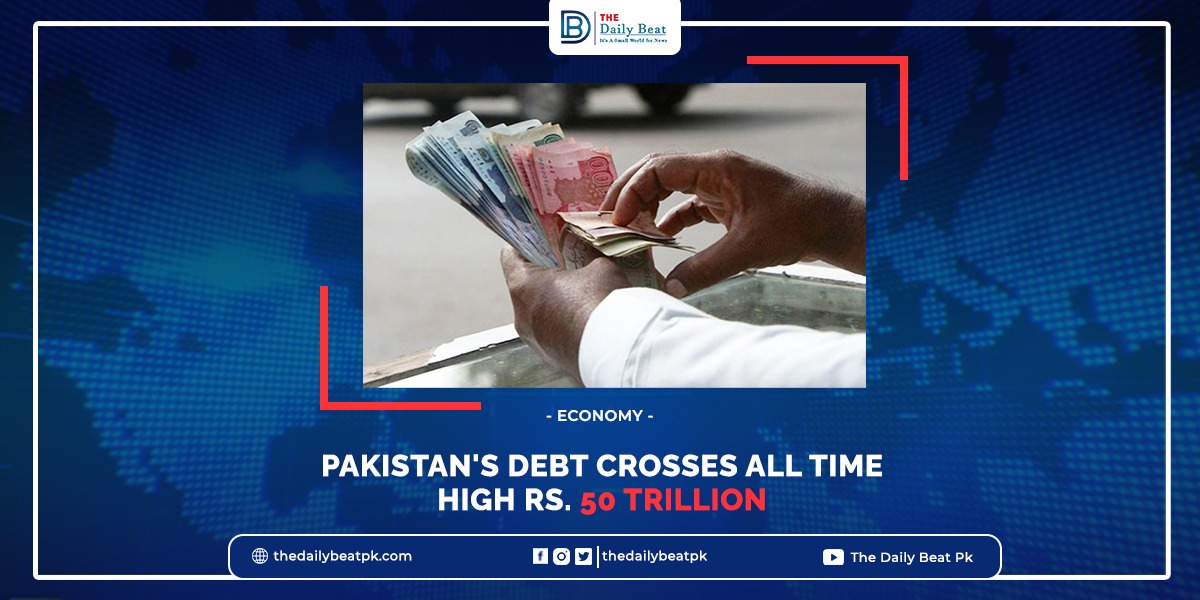ISLAMABAD: According to official numbers issued on Wednesday, Pakistan’s overall debt and obligations have surpassed Rs50.5 trillion for the first time in history, with an increase of Rs20.7 trillion during the present administration alone.
State Bank of Pakistan (SBP) announced the country’s debt estimates until September 2021, a day after Prime Minister Imran Khan labelled rising debt as a “national security threat.”
According to the data, the overall debt as well as the public debt position worsened during the term of the present Pakistan Tehreek-e-Insaf (PTI) administration in Pakistan.
As of the end of September 2021, Pakistan’s overall debt and obligations had reached a new high of Rs50.5 trillion, representing an increase of Rs20.7 trillion over the previous 39 months. The entire amount of debt owed by the government has increased by approximately 70% since 2008.
When the PTI took power, every Pakistani owed Rs144,000, which would rise to Rs235,000 by September 2021, representing an increase of Rs91,000 or 63 percent during the PTI’s mandate.
The PTI government, like its predecessor, is reliant on foreign and domestic loans and has failed to raise income to levels that would allow the government to lower its debt load, as did the previous administration.
When it comes to the public debt, which is the direct responsibility of the federal government, the situation is no different.
By September of current year, the national debt had climbed to Rs41.5 trillion, representing a growth of Rs16.5 trillion during the PTI’s mandate. According to the official report, the total public debt climbed by 66 percent between July 2018 and September 2021.
When the PML-N administration concluded its five-year tenure, the overall public debt stood at Rs24.95 trillion, or 72.5 percent of GDP, according to the World Bank’s World Development Report.
The accumulation of debt is a direct result of the growing gap between expenditures and revenues, which is widening as a result of the inelasticity of debt servicing and defence requirements, as well as the failure of the Federal Board of Revenue (FBR) to significantly increase tax revenue collection.
In accordance with the IMF’s loan condition, the government would reduce the contingency grants budget by Rs50 billion and the Public Sector Development Program by Rs200 billion, which will cause the country’s development progress to be slowed significantly.

The Daily Beat is an unconventional Digital Media and News Company/Website. We publish News not chaos.
